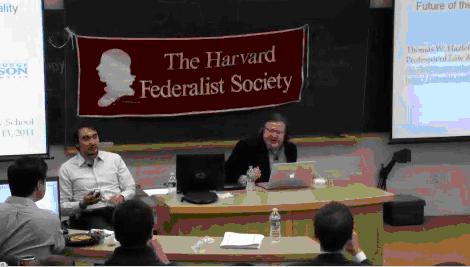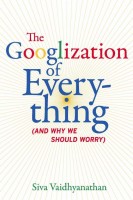Twitter curmudgeon @derekahunter writes: “With all the medical advances of last 100 years, why hasn’t anyone created a cough drop that doesn’t taste like crap?” Dammit, he’s right! Why hasn’t the market for cold remedies produced a tasty cough drop? Put differently, the market for cold remedies has failed to produce a tasty cough drop. The market has failed. Market . . . failure.
We have now established the appropriateness of a regulatory solution for the taste problem in the field of cold remedies. Have we not? There is a market failure.
No, we haven’t.
“Market failure” is not what happens when a given market has failed so far to reach outcomes that a smart person would prefer. It occurs when the rules, signals, and sanctions in and around a given marketplace would cause preference- and profit-maximizing actors to reach a sub-optimal outcome. You can’t show that there’s a market failure by arguing that the current state of the actual market is non-ideal. You have to show that the rules around that marketplace lead to non-ideal outcomes. The bad taste of cough drops is not evidence of market failure.
The failure of property rights to account for environmental values leads to market failure. A coal-fired electric plant might belch smoke into the air, giving everyone downwind a bad day and a shorter life. If the company and its customers don’t have to pay the costs of that, they’re going to over-produce and over-consume electricity at the expense of the electric plant’s downwind neighbors. The result is sub-optimal allocation of goods, with one set of actors living high on the hog and another unhappily coughing and wheezing.
Take an issue that’s closer to home for tech policy folk: People seem to underweight their privacy when they go online, promiscuously sharing anything and everything on Facebook, Twitter, and everyplace else. Marketers are hoovering up this data and using it to sell things to people. The data is at risk of being exposed to government snoops. People should be more attentive to privacy. They’re not thinking about long-term consequences. Isn’t this a market failure?
It’s not. It’s consumers’ preferences not matching up with the risks and concerns that people like me and my colleagues in the privacy community share. Consumers are preference-maximizing—but we don’t like their preferences! That is not a market failure. Our job is to educate people about the consequences of their online behavior, to change the public’s preferences. That’s a tough slog, but it’s the only way to get privacy in the context of maximizing consumer welfare.
If you still think there’s a market failure in this area—I readily admit that I’m on the far edge of my expertise with complex economic concepts like this—you haven’t finished making your case for regulation. You need to show that the rules, signals, and sanctions in and around the regulatory arena would produce a better outcome than the marketplace would. Be sure that you compare real market outcomes to real regulatory outcomes, not real market outcomes to ideal regulatory outcomes. Most arguments for privacy regulation simply fail to account for the behavior of the regulatory universe.
Adam has collected quotations on the subject of regulatory capture from many experts. I wrote a brief series of “real regulators” posts on the SEC and the Madoff scam a while back (1, 2, 3). And a recent article I’m fond of goes into the problem that many people think only consumers suffer, asking: “Are Regulators Rational?”
There’s no good-tasting cough drop because the set of drops that remedy coughing and the set of drops that taste good are mutually exclusive. Not because of market failure.




 The Technology Liberation Front is the tech policy blog dedicated to keeping politicians' hands off the 'net and everything else related to technology.
The Technology Liberation Front is the tech policy blog dedicated to keeping politicians' hands off the 'net and everything else related to technology.